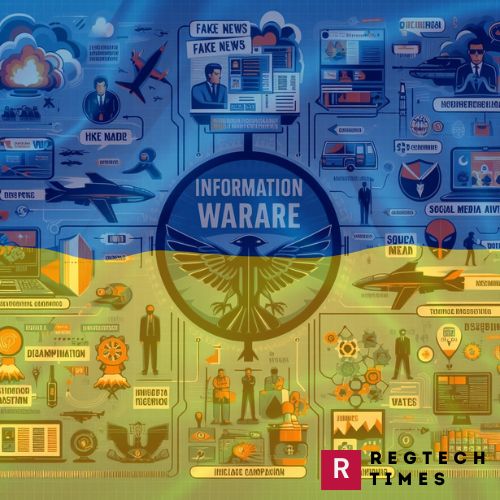In the convoluted realm of international politics, the line between truth and deception often blurs, especially in conflicts like the ongoing tension between Ukraine and Russia. A recent revelation concerning an alleged assassination plot targeting Ukrainian President Volodymyr Zelensky sheds light on the intricate dynamics of disinformation and propaganda in modern warfare.
The Foiled Plot: The Ukrainian Government’s Revelation
The Ukrainian Security Service (SBU) revealed a chilling plot to assassinate President Zelensky and other high-ranking officials, implicating two colonels within the State Security Administration as alleged Russian agents. The motive behind the plot, according to Ukrainian authorities, was to present a sinister “gift” to Russian President Vladimir Putin on the eve of his fifth term inauguration.
The alleged involvement of Russian agents in such a brazen scheme underscores the depth of animosity between Ukraine and Russia, which has simmered since the annexation of Crimea and the outbreak of conflict in eastern Ukraine.
Disinformation Strikes: Russia’s Response to the Alleged Plot Against Volodymyr Zelensky
Russian disinformation operatives swiftly went into action, leveraging platforms like Infobrics.org to distort the narrative. The disinformation campaign aimed to cast doubt on Ukraine’s alliances and deflect blame onto Western powers. Infobrics.org, known for spreading pro-Russian propaganda, published an article denying Russian involvement and implicating the West instead.
The article’s author, Lucas Leiroz, is associated with a neo-fascist organization inspired by Russian ideology, raising questions about the ideological motivations behind the disinformation efforts. Leiroz’s involvement underscores the ideological battlegrounds on which disinformation campaigns are waged.
Coordinated Dissemination: How Falsehoods About the Zelensky Plot Spread
The disinformation campaign didn’t stop at Infobrics.org. Lucas Leiroz’s article was disseminated across multiple platforms, including “The Intel Drop” and “SouthFront,” known for their ties to Russian disinformation efforts. This coordinated dissemination highlights the breadth and depth of Russia’s influence operations.
These platforms serve as conduits for spreading falsehoods and manipulating public opinion, amplifying the reach and impact of disinformation campaigns. By saturating multiple channels with misleading narratives, Russian operatives seek to create confusion and sow distrust among their adversaries.
Response from Russian State Media: Denial and Doubt
Russian state media outlets like RT and TASS echoed the narrative of Russian non-involvement while amplifying doubts about the credibility of Ukrainian authorities and President Zelensky. This coordinated effort aims to sow discord among Western allies and undermine the international community’s response to Russian aggression.
The strategy of denial and deflection employed by Russian state media is a classic tactic in information warfare, designed to obfuscate the truth and undermine the credibility of opposing narratives. By casting doubt on the veracity of Ukrainian claims, Russia seeks to create fissures within the international coalition aligned against it.
International Response to Zelensky: Condemnation and Vigilance
Despite Russian efforts to obfuscate the truth, the international community, led by the United States Department of State, has condemned Russia’s actions as evidence of Kremlin depravity. This firm stance underscores the importance of remaining vigilant and united against disinformation and aggression.
Efforts to combat disinformation must be multifaceted, involving diplomatic, technological, and informational countermeasures. By exposing and debunking false narratives, the international community can mitigate the impact of disinformation and uphold the integrity of democratic institutions.
Conclusion: Pursuing Truth Amidst Deception
The alleged assassination plot against President Zelensky serves as a stark reminder of the dangers posed by disinformation and propaganda. As geopolitical tensions rise and information becomes weaponized, it is imperative to remain steadfast in our pursuit of truth and justice, lest we succumb to the machinations of those who seek to manipulate and deceive.
By shining a light on the shadowy world of disinformation and propaganda, we can empower individuals and nations to resist manipulation and uphold the principles of transparency and accountability. Only by confronting falsehoods with facts and narratives with truth can we hope to navigate the treacherous waters of modern information warfare.



